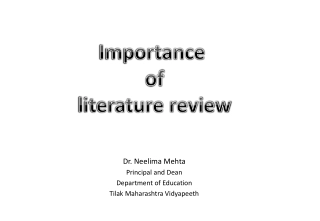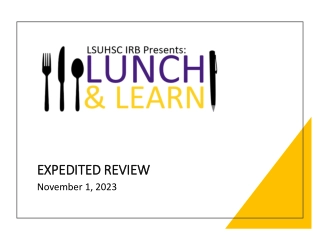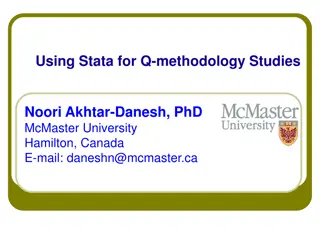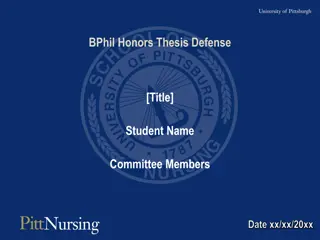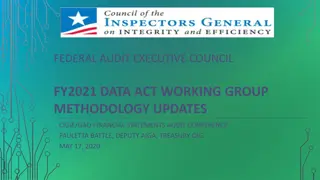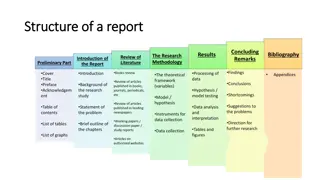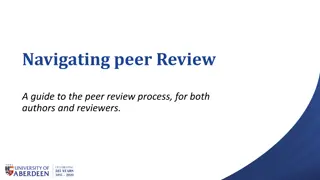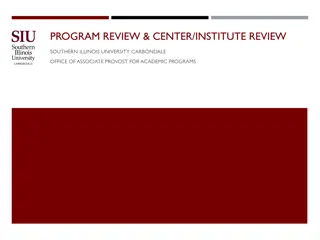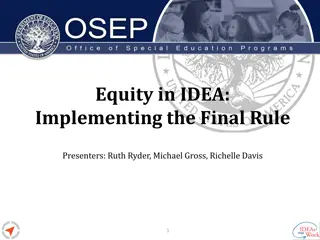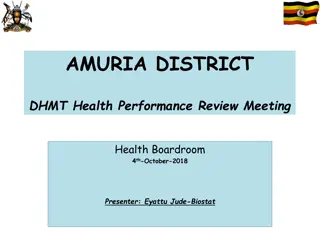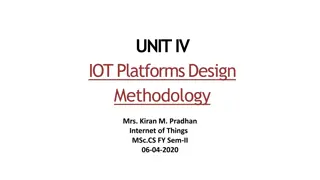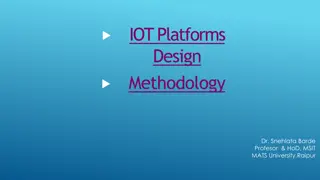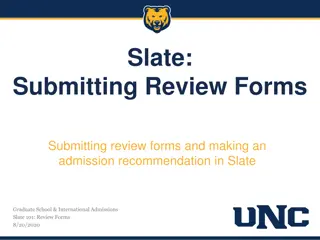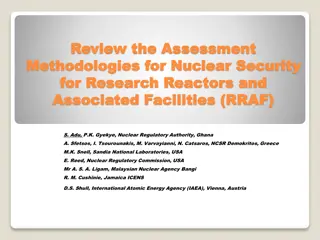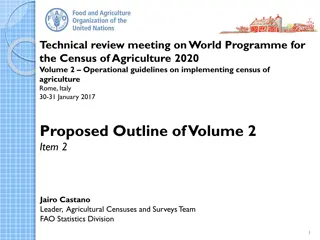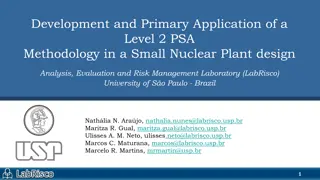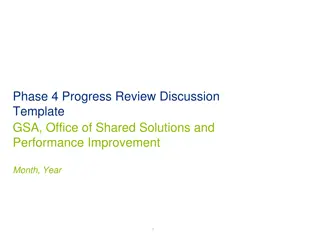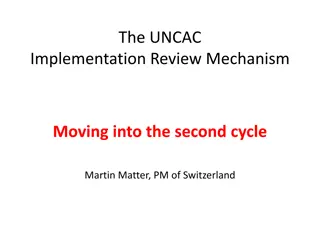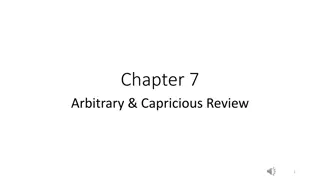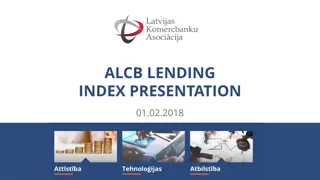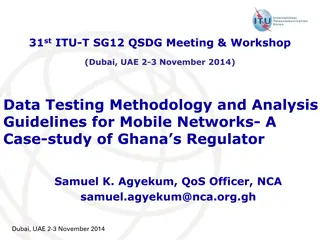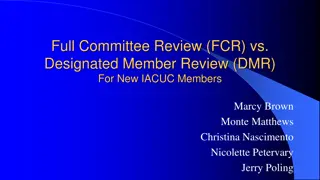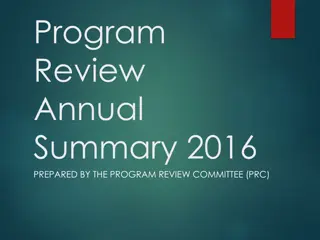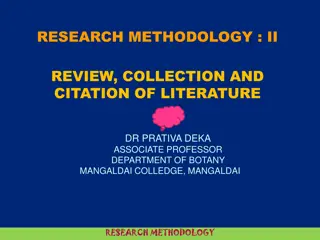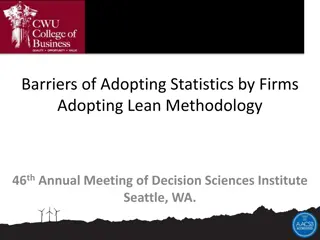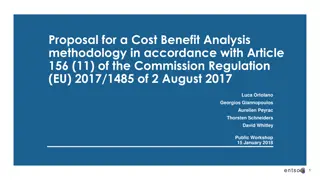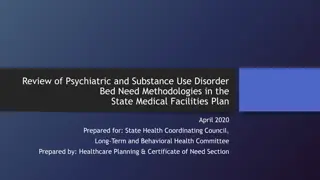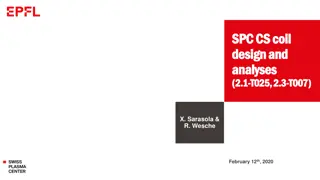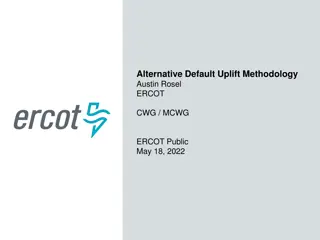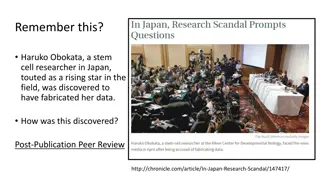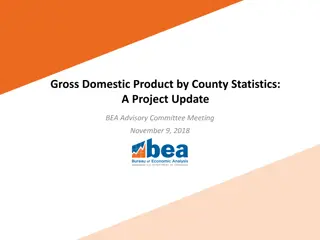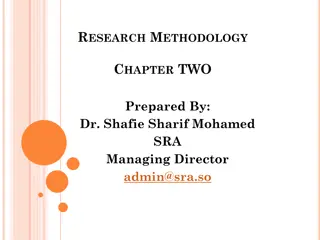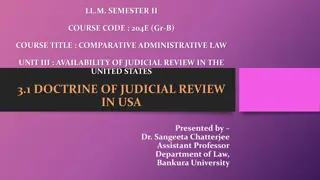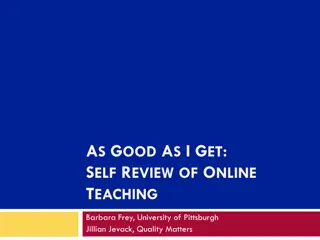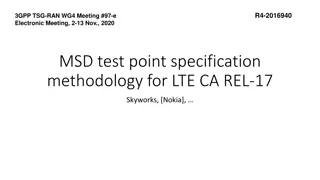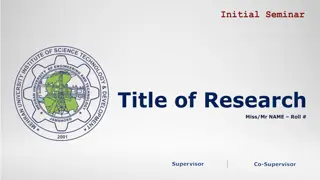Importance of literature review
A literature review is a critical component of any research endeavor, providing a comprehensive analysis of existing knowledge in a particular field. This review helps in clarifying conceptual issues, understanding research design, persuading examiners, and contributing new insights to the subject a
0 views • 28 slides
Understanding IRB Review Process for Expedited Research
Learn about the significance of IRB review, levels of review, and categories of expedited review. Discover the criteria for IRB review, including whether the study involves human subjects and contributes to generalizable knowledge. Explore the different levels of IRB review and the specific categori
4 views • 11 slides
Understanding Q-Methodology: A Stata Analysis Overview
Q-Methodology is a research approach focusing on subjective viewpoints. This article discusses the history, goals, and steps involved in a Q-methodology study using Stata programs. It covers the development of a concourse, creation of a Q-sample, Q-sorting activities, and analysis and interpretation
5 views • 46 slides
Rapid Review of BSL Commissioning Arrangements by Dr. Michael Brady
NECS commissioned a Rapid Review of British Sign Language (BSL) service provision to identify areas for improvement in access and patient experience, especially during the Covid-19 pandemic. The review focused on stakeholder engagement, options appraisal for commissioning responsibility, and recomme
9 views • 19 slides
BPhil Honors Thesis Defense: In-Depth Analysis and Discussion
Delve into the comprehensive presentation of a BPhil Honors thesis defense focusing on the background, purpose, study methodology, results, and discussion. Explore the literature review, gaps in knowledge, problem statement, specific aims, significance, methodology design, statistical analysis, find
0 views • 15 slides
Federal Audit Executive Council FY2021 Data Act Working Group Overview
The Federal Audit Executive Council's Data Act Working Group assists Inspector Generals in meeting oversight requirements. Established in 2015, it includes a Common Methodology Team and a Governance Team to ensure compliance. The teams work on soliciting feedback, developing audit guides, conducting
0 views • 22 slides
Understanding the Structure of Research Reports
A research report consists of several key sections such as the preliminary part, introduction, literature review, methodology, data analysis, results, conclusions, and bibliography. The preliminary part includes components like cover, title, preface, acknowledgement, table of contents, list of table
0 views • 8 slides
Navigating Peer Review: A Comprehensive Guide for Authors and Reviewers
In academic publishing, peer review plays a crucial role in maintaining publication quality. This guide offers a detailed overview of the peer review process for both authors and reviewers, covering topics such as receiving review invitations, manuscript submission, writing effective reviews, and mo
0 views • 31 slides
Southern Illinois University Carbondale Office of Associate Provost for Academic Programs Review
The Program Review & Center/Institute Review at Southern Illinois University Carbondale aims to educate attendees on IBHE requirements, the review process, conflict of interest policies, self-study writing, on-site review involvement, financial support, and available resources. The IBHE mandates rev
0 views • 37 slides
Equity in IDEA: Implementing the Final Rule Presentation
Recap the final rule on equity in IDEA, focusing on standard methodology, remedies, important dates, and addressing questions. Discuss the methodology requirements, including data collection on disproportionality and disciplinary actions. Explore the standard methodology components, like risk ratios
0 views • 49 slides
Health Performance Review Meeting in Amuria District DHMT
Eyattu Jude, the Biostat presenter, conducted a Health Performance Review Meeting in the Amuria District Boardroom on October 4th, 2018. The meeting discussed the rationale, methodology, challenges, and the way forward for various health services such as OPD, IPD, Malaria, CH, MH, HIV/AIDS, and HRH.
1 views • 29 slides
IoT Platforms Design Methodology for Efficient System Development
Designing IoT systems can be complex due to the interactions between various components like devices, network resources, web services, analytics, applications, and servers. This article presents a generic design methodology for IoT systems that is independent of specific products or services, leadin
2 views • 8 slides
IoT Platforms Design Methodology by Dr. Snehlata Barde - Overview
Designing IoT systems can be complex, but with a generic methodology like the one proposed by Dr. Snehlata Barde, designing, testing, and maintaining IoT systems becomes more efficient. The methodology focuses on purpose, requirements, process specification, domain model specification, information m
0 views • 9 slides
Slate Graduate School & International Admissions Review Forms Overview
Explore the process of submitting review forms and making admission recommendations in Slate Graduate School & International Admissions, including automatic assignment of applications to queues, review of Staff Review Forms, and recommending admission or denial through Faculty Review Forms. Learn ab
0 views • 8 slides
Comprehensive Review of Methodologies for Nuclear Security in Research Reactors and Facilities
This review assesses methodologies for nuclear security in Research Reactors and Associated Facilities (RRAF). It focuses on applying a performance-based framework to evaluate the protection of nuclear materials and facilities. A case study on the Vulnerability of Integrated Security Analysis method
2 views • 17 slides
Operational Guidelines for Implementing World Programme for the Census of Agriculture 2020 Volume 2
Proposed outline of Volume 2 presented at a technical review meeting in Rome, Italy. The purpose of Volume 2 is to provide comprehensive guidance on preparing and conducting agricultural censuses, with detailed steps on developing the census chapter, planning, methodology, and implementation. The st
5 views • 12 slides
Development and Primary Application of Level 2 PSA Methodology in Small Nuclear Plant Design Analysis Lab
The study at the LabRisco in University of São Paulo, Brazil focuses on developing and applying a Level 2 Probabilistic Safety Assessment methodology for a small nuclear plant design evaluation. The work entails identification of severe accident scenarios, analysis of nuclear systems, and construct
0 views • 17 slides
Market Data Analytics Methodology Overview
MarketLine produces market sizing data for retail Consumer Packaged Goods (CPG) markets through a comprehensive research methodology that includes thorough industry review, primary and secondary research, extensive data analysis, and forecasting models driven by macro-economic and socio-demographic
0 views • 13 slides
Phase 4 Progress Review Discussion Template Overview
This template guides a Progress Review discussion involving a Customer, Provider, and Key Stakeholders. It addresses the gaps in common business requirements, risk assessment confidence, deployment readiness, budget impacts, migration costs, and more. The template provides instructions for completin
0 views • 25 slides
Understanding Judicial Review in Administrative Law
In this chapter, the concept of judicial review in administrative law is explored, focusing on the scope of review set by Congress, including trial de novo and independent judgment on evidence. Different standards of review, such as clearly erroneous and substantial evidence, are discussed, highligh
0 views • 23 slides
UNCAC Implementation Review Mechanism: Moving Towards the Second Cycle
The UNCAC Implementation Review Mechanism is progressing into its second cycle, with a focus on evaluating challenges and terms of reference at the conclusion of each review cycle. The performance assessment has highlighted achievements in enhancing awareness and involvement of civil society/private
0 views • 7 slides
Understanding Arbitrary and Capricious Review in Administrative Law
Arbitrary and Capricious Review refers to a highly deferential standard applied to agency decisions, requiring agencies to demonstrate compliance with statutory requirements. The landmark case of Citizens to Preserve Overton Park v. Volpe set the precedent for a thorough judicial review based on the
0 views • 8 slides
ALCB Lending Index Presentation & Methodology Overview
Explore the ALCB Lending Index Presentation held on 01.02.2018, including methodology, results, and discussions on lending for economic growth. Discover the index development process, methodology, and factors impacting banks' ability and desire to lend, as well as borrowers' ability and desire to bo
0 views • 14 slides
Global Peer Review Activities and Future Plans Overview
This document highlights the recent peer review activities conducted by the Subcommittee on Peer Review, focusing on the accomplishments and upcoming plans for enhancing peer review processes. It includes insights from the Global Flyer Survey, training programs, and the development of guidelines, al
0 views • 3 slides
Data Testing Methodology and Analysis Guidelines for Mobile Networks - A Case Study
Presentation outlining a data test measurement system for mobile networks, focusing on methodology, hardware components, measurement profiles, configuration, and analysis guidelines. The case study of Ghana's Ashanti Region is discussed, highlighting the test methodology and configuration specificat
0 views • 22 slides
Understanding Full Committee Review (FCR) vs. Designated Member Review (DMR) for New IACUC Members
Explore the differences between Full Committee Review (FCR) and Designated Member Review (DMR) for new IACUC members. Learn the acceptable methods of protocol review, federal requirements, member responsibilities, risks, and best practices for protocol approval. Dive into the two valid methods of IA
1 views • 23 slides
Program Review Annual Summary 2016 by PRC Committee
The Program Review Annual Summary 2016, prepared by the Program Review Committee (PRC), presents a detailed review of instructional programs and administrative units at the College. The report outlines the purpose of the annual review, the themes and issues identified, and recommendations for improv
0 views • 13 slides
Review, Collection, and Citation of Literature in Research Methodology
The review of literature in research methodology is crucial as it helps researchers acquire up-to-date information, build upon existing knowledge, and avoid redundant work. It involves examining scholarly journals, books, databases, and other sources to enhance understanding, formulate ideas, and ex
0 views • 22 slides
Lean Six Sigma Methodology for Business Excellence
Lean Six Sigma methodology offers a strategic approach to optimize business processes, reduce costs, enhance quality, and improve customer satisfaction. This efficient methodology focuses on eliminating waste and defects to drive revenue growth and profitability for organizations. With a background
0 views • 27 slides
Cost-Benefit Analysis Methodology as per EU Regulation 2017/1485
This proposal outlines a comprehensive Cost-Benefit Analysis (CBA) methodology in line with Article 156(11) of the Commission Regulation (EU) 2017/1485. The methodology is designed to address the requirements for Frequency Containment Reserve (FCR) and Limited Energy Reservoirs (LER) within the regu
0 views • 64 slides
Review of Psychiatric and Substance Use Disorder Bed Need Methodologies
The report discusses the methodologies for determining the need for psychiatric and substance use disorder beds in the State Medical Facilities Plan, addressing the disconnect between existing methodology and the perceived need for additional beds. It explores principles, assumptions, calculations,
0 views • 29 slides
SPC.CS Coil Design and Analyses: Requirements, Assumptions, and Methodology
This document discusses the design and analysis of SPC.CS coil, focusing on maximizing magnetic flux, survival under fatigue conditions, and materials used for different field layers. It covers requirements, assumptions, and the methodology for uniform current density solenoid design. The study aims
0 views • 15 slides
Analysis of Default Uplift Methodology Changes in ERCOT
This document delves into the impact of changes to the Default Uplift Methodology in ERCOT, focusing on the removal of CRR Auction activity and the multiplication of CRRs owned. It explores scenarios with varying multipliers at different levels, revealing potential implications for QSEs, CRRAHs, and
0 views • 10 slides
Uncovering Fabricated Data in Stem Cell Research: The Haruko Obokata Scandal
Haruko Obokata, a promising stem cell researcher in Japan, faced allegations of data fabrication, leading to a significant research scandal. Post-publication peer review platforms like PubPeer, PubMed Commons, F1000 Research, and ResearchGate Open Review play vital roles in detecting and addressing
0 views • 11 slides
Update on Gross Domestic Product by County Statistics
This project update for the BEA Advisory Committee meeting on November 9, 2018, outlines the process of releasing prototype statistics related to Gross Domestic Product by County. It details the identification of data sources, methodology development, estimation software, and official release review
0 views • 18 slides
Effective Strategies for Conducting a Literature Review in Research Methodology
Understanding the importance of literature review in research methodology, this chapter discusses the objectives, aims, and guidelines for writing a comprehensive literature review. It emphasizes the significance of identifying gaps in existing knowledge, structuring the review, and organizing infor
0 views • 33 slides
Understanding the Doctrine of Judicial Review in the United States
Judicial Review is a crucial power of the judiciary to review the constitutionality of laws and executive orders. This article explores the origin of Judicial Review in the United States, focusing on the landmark case of Marbury v. Madison. It delves into the concept, importance, and application of
0 views • 14 slides
Enhancing Online Teaching Through Self-Review: Challenges and Benefits
Explore the self-review process of online teaching, including identifying challenges, benefits, and different types of reviews. Learn about developing an effective review guide, promoting collegiality, and facilitating professional development in online teaching. Discover the components of a review
0 views • 23 slides
Evolution of LTE-CA Test Point Specification Methodology for Release-17
The current LTE-CA MSD test point methodology in LTE releases results in specifying redundant test points. Adopting the NR Way of Working for LTE-CA in Release-17 could simplify the MSD tables, reduce complexity, and cut conformance test time/cost. The proposal aims to prevent further expansion of L
0 views • 7 slides
Research Framework and Methodology in Science, Technology, and Humanities
This study delves into developing a robust research framework and methodology in the fields of science, technology, and humanities. It covers literature review, research gap identification, formulation of research questions and objectives, theoretical framework description, and research methodology
2 views • 13 slides
